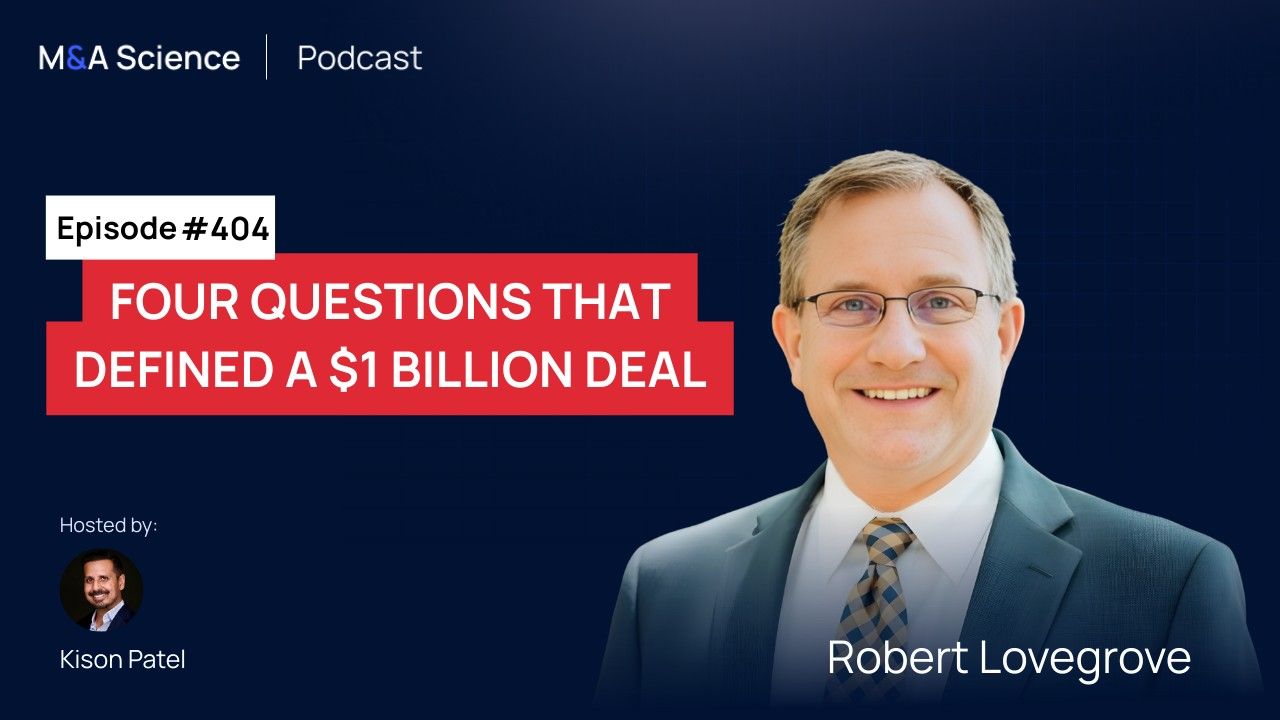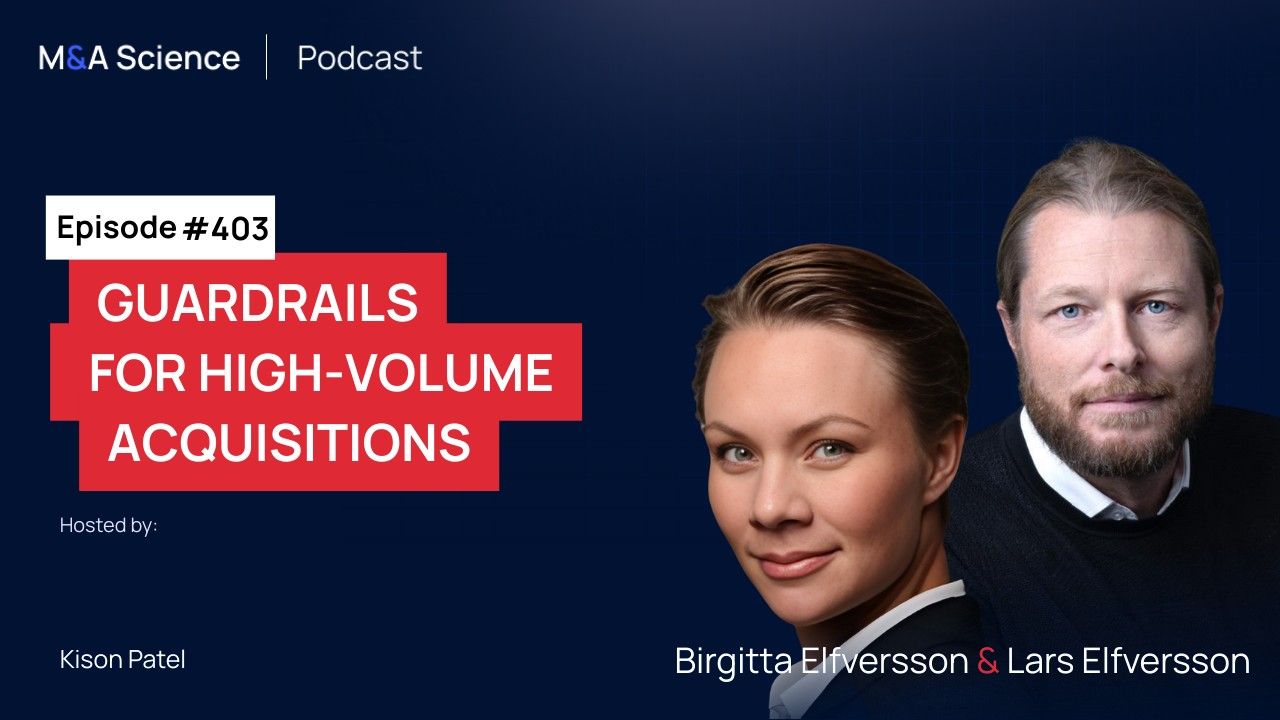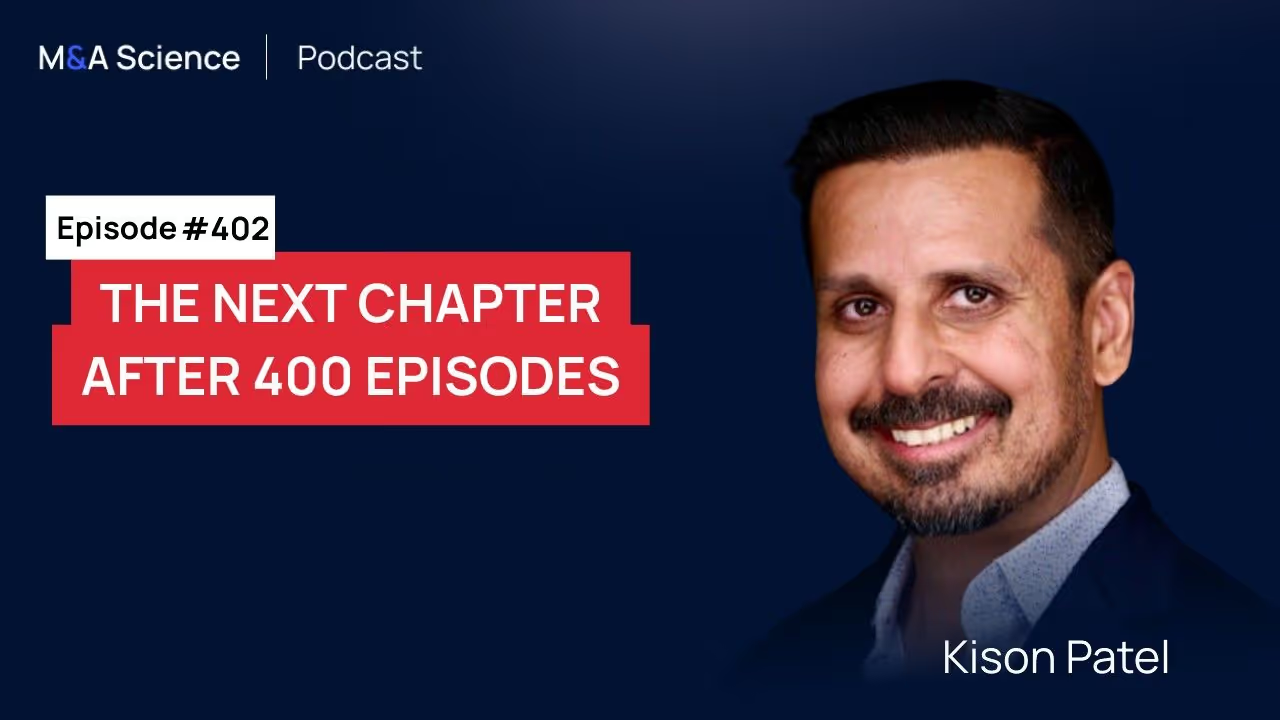
Sean Peace
Sean Peace is an entrepreneur who started several companies and has large company experience at SAS and SAP. Most of his experience is in Marketplaces and Social Networks, from creating the first Music Royalty marketplace to a Social Network for the workplace, and working on the first stock market for Music.
Episode Transcript
Intro
In this episode, Sean Peace tells a captivating story about selling an exciting and unprofitable business in a unique niche. Sean is the founder of two companies, SongVest and Royalty Exchange. We discuss his experience with royalty exchange from the initial start to how it ultimately faltered. He shares ways he would do differently in hindsight.
When I looked at your LinkedIn, I saw there were two companies, a SongVest and Royalty Exchange. Were those two different, unrelated, or related businesses?
They were somewhat related. We didn't have an exit, we just shut it down, and at some point, it could resurrect itself again, but that was the precursor to Royalty Exchange. SongVest was all about selling music royalties as memorabilia.
We were the first folks ever to package up musical royalties, to begin with, and sell them. However, the fans could care less about the songwriter, so if a songwriter was selling a piece as memorabilia, they wanted the artists’ version there.
Because we couldn't scale that and we couldn't get artists to get on board, the business just didn't go anywhere. However, that didn't stop me from thinking about an opportunity that was present here, because all of these songwriters wanted to monetize their royalties.
I started thinking about creating a different kind of platform and package these up as a true financial investment instead of memorabilia, and that's what started the Royalty Exchange.
Can you tell me a little bit more about Royalty Exchange and your timeline with that company?
We started in 2013. We ran it about a year to two years before we got our investment. It's a marketplace that allows anyone with a royalty stream to come to us. We do the first level of bedding to make sure it's a valid world stream, that it can be packaged up and sold. We do all the due diligence around it, and then we would put it on our website and allow investors to come.
In the initial offerings, it was always one-to-one transactions, and then once we started the company and got funded, we did look into splitting that up into multiple pieces as another way for investors to reduce the risk. We probably had just over a hundred thousand dollars in revenue when we got our first venture capital investment of $2 million.
From there, did you deploy that capital towards growth, and what'd you do for that?
We assumed that if we had the capital to market to songwriters since we already knew they were out there and willing to sell on the platform, that we could hire some salespeople, do some targeted marketing and fill up the funnel. We spent a good chunk of that money building infrastructure to make sure that we could support hiring sales reps in the field and marketing.
We knew that we wanted to change the model and not limit ourselves to one buyer and one seller. So, we took maybe a fourth of that money and put it into legal to try and find a securitized method for us to carve these up in smaller units and sell them. Ultimately, we did find a way to do that through this asset-backed security.
The issues started to arise when we found out that having seasoned sales reps who were very in the music industry, weren’t able to generate the deal flow that we had anticipated. We pivoted multiple times to try and figure out how to get the deal flow to increase, and that was probably the biggest stumbling block of all.
Maybe we waited too long before we jettisoned the sales reps and didn't look for a pivot sooner than we should have to conserve cash so that we could figure out the right way to address the market.
When did you get to a point where you had to shift your whole strategy and direction altogether?
When the sales numbers weren't coming in, it's difficult in general to forecast an auction marketplace. We had two issues in forecasting revenue. One is that we're dealing with songwriters that change their mind in half a second because they're not business people. We had a very unreliable customer base. We had a lot of auctions where you can't predict where that auction is going to sell at that particular price.
There were a lot of things going against us and that affected our ability to message back to the board and back to the investor. Once cash started to dry up, the reality is, if you're not hitting certain revenue numbers, second rounds of funding are going to be few and far between.
In addition to that, a FinTech startup in the Southeast started dealing with entertainment in the Southeast, so our pool of available people got even smaller. The good thing in all of that is, we have a piece of technology that we started brainstorming that automatically logged into all of these royalty websites and pulled down the statements for the songwriters.
Now all of a sudden there's always data that they could look at and analyze and try and do something with, but nobody was prepared and still, mainly isn't prepared to allow you to analyze any of that data, so that's what our tool did.
So, it logged in, it grabbed all this information, and then that helped us to be able to analyze the data and say how much we'll give you an advance or sell your royalties for. That became our route to market because now there's a reason for somebody to want to give us their data. After all, we're providing them a service.
We started getting this out to the market in January when our cash was starting to dry up. And then in addition to that, we said, well, we can further get to the market because the only people that know where all the songwriters live or the people that pay the songwriters.
We were getting ready to roll out when the cash did dry out a new version of that product that would allow all of the publishers the ability to use our tool internally, but we never got to that space. That was our pivot.
So you ended up selling the company to two different buyers. Can you tell me a little bit more about that? When did you start looking for other ways to salvage your investment?
The board and our management team saw the writing on the wall. We probably should have planned a little bit earlier, but we did plan with enough cash in the bank and also through a loan that the VCs gave us that we did payback with the sale to shut down the company appropriately.
That did give us enough time. We were managing a whole bunch of people's money, so we had to spend a lot of time to extract ourselves from that and get people paid directly.
We probably made that decision in April and had everything wrapped up mid-May. There was enough cash in the bank that allowed me to continue to try and find a buyer up until September or October when we finally closed the deal to sell all the assets.
We knew that we weren't going to get cash and we had some debt. If I look at the lessons learned, one of them would be to watch the burn rate, watch how much cash we had, don't listen to people that say that you're going to get follow-on funding.
Probably the saddest thing out of this is that you don’t get to keep the company, and ultimately I had to sell the company and I didn't get anything for it. We did effectively shut down the company correctly and that’s it.
In terms of finding or identifying these parties that ended up buying the transaction, was that you, or did the board help with that?
That was me. Ours was a different model, so we already had a whole bunch of investors that liked the platform. We didn't necessarily want to scare anybody off because we didn't want to ruin the potential buyer's opportunity to continue to keep the company going, but we’ve solicited a lot of our customer base, told them about our particular situation, and that we're looking for a strategic partner or a buyer.
We wanted to find a partner that wants to come in, take 50% ownership, and recapitalize it, so that's what we did initially. Then I just went out through my connections in the music industry, because I knew that I had these two pieces.
I never really envisioned splitting them up per se, but I did know there was a lot of value in the technology we developed, so that’s what I pushed in the music industry. And then to find a buyer, we pushed out to our customer base in the financial industry to see if anyone was interested there, so we had one buyer for the website and a buyer was interested in the technology.
We were able to almost quadruple what we thought we were going to get for the company. So it ended up being good from that perspective. For one-fourth of the price that the technology was sold for I feel comfortable because that technology has since been used by a heavy hitter in the music industry, and the website Royalty
Exchange is still doing very well. I think that the model is continuing to be proven. They're having more options than we ever had and it's just unfortunate that we didn't have the financial legs to just keep it going.
During that process of selling the company did you work with any advisors?
We didn't want to have any advisors. Our independent board member has been through a couple of these before, so he was just great in assisting, and helped out to make sure we were doing everything correctly.
We took our time. We made sure that we reached out to every person that we had any kind of debt with, we made sure to pay the accountants, to close out the books, and do the taxes. We pretty much thought of everything from a contingency plan. I got a lot of comments back from vendors who are very appreciative of the fact that we did let them know how things are.
One of the biggest things that folks should know about is that American Express is on your credit, so if we would have run out of cash and we couldn't have paid that, that would have been on my personal credit and they would be coming after me for it. One of the lessons learned is to use Visa or MasterCard and make sure that you're not held personally liable for it.
Were there any surprises that came up during this process?
Other than the Amex, which is one of the surprises, it was just a little stuff like what do you do with the furniture or with computers. Someone's got to buy those things, right? Also, you can't just walk away from all the documentation either.
Do you have every copy of everything? The E's DocuSign for paper documents and where are you going to store those? If something happens, and God forbid someone needs to come back and look at something, you need to make sure that all of that stuff is taken care of.
The other interesting thing was that there probably were ways that I could have kept the company if I really would've pushed it. The VCs don't care at this point. They invest in hundreds of companies and if you're not one of the top two, then they lose interest fast and they just want to get done and get out.
I think there were several opportunities that we probably could have negotiated something with the VCs to get the company back. What I can share with other folks is don't just think that all of this should be sold and just go away.
Try and negotiate with your VC just as much as you might try and negotiate with the buyer, especially if there's not a buyer on the horizon to keep the company, especially if a company was like ours and could have kept going. Know that there are options for you at the end. The just VCs have no interest at all in a slow-growth company, so you’ll need to push more to save the company.
Other than going back and negotiating with the VCs, were there other things that if you were to do it again, you would've done differently?
Without a doubt. Cash is King, even if someone says you can go get funding, or I can introduce you to a thousand people to get funding. Unbelievable. The VC wants you to grow as fast as possible and that may not be best for the company. It is much wiser to make sure that we validate the model along the way and then ramp up.
Then, once you have that ramp and you know what's going on, that's when you can go out and you have enough cash in the bank to go out and try and raise the second or third round of funding. If I had to do it all over again, I would watch the cash and treat it like it's my money and make sure that there is enough runway, especially even to slow down.
The other big thing is to try to work with whoever your CFO is or controller is and figure out the cutoff point, because as soon as you go past that line and you have nothing to negotiate with you are in trouble. Know where that line is and don't cross it.
Would you start another company and raise money from VCs again?
I'm starting another one and I'm bootstrapping at myself, just like I did with Royalty Exchange initially. I think this time I'm going to try and get it to a sustainable positive cash flow where I want to be one hundred percent sure that if I take somebody else's money that we can get to the goals that we set for ourselves. There's always going to be some risk along the way but I want to try and reduce that risk as much as possible and keep it in strap mode for a lot longer than I might have before.
Ending credits
Thank you for taking the time to explore the world of M&A with our podcast. Please subscribe for more content and conversations with industry leaders. If you like our podcast please support us by leaving a five-star review and sharing it. M&A Science is sponsored by Deal Room, a project management solution for mergers and acquisitions. See you next time!
M&A Software for optimizing the M&A lifecycle- pipeline to diligence to integration
Explore dealroom

Want to wear your M&A expertise?
Check out the M&A Science store.

.avif)



